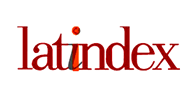Governance and sustainability
Why does this topic matter in Brazil?
Keywords:
governance, sustainability, brazilAbstract
The relationships between public governance and sustainability are still embryonic in national literature. The combination of two themes that are complex in themselves and not yet sufficiently disseminated in Brazilian public bodies is a challenge that this study proposes to develop.
The foundation is constitutional, ethical, rational and humanistic. Assumption that efficiency in public bodies is much more than economic, deadlines and measurable results. Measurement is necessary, a basic assumption for monitoring and evaluating what is implemented and how it is implemented. Efficiency, however, has a constitutional basis and as such must be considered, systemically linked with other constitutional guidelines, among which the imposition of the Public Power to defend and preserve the environment for present and future generations stands out.
References
VILLAC, T. Advocacia pública consultiva: reflexões à luz do pensamento de Martha Nussbaum e Amartya Sen. O novo papel da advocacia pública consultiva no século XXI. In: MENDONÇA, André Luiz de Almeida et al. (Orgs.). Belo Horizonte: Editora D’Plácido, 2020.3 SABATIER, Paul A.; WEIBLE.Christopher M. The advocacy coalition framework: Innovations and clarifications. In: Theories of the policy process. Routledge, 2019.
KINGDON, J. W. Agendas, alternatives and public policies. 2. ed. New York: Longman Publishing Group, 1997.
ORLANDI, E. L. P. Discurso e argumentação: um observatório do político. Fórum Linguístico, v. 1, n. 1, p. 73-81, 1998; ORLANDI, E. L. P. A Análise de Discurso em suas diferentes tradições intelectuais: o Brasil. Seminário de Estudos em Análise de Discurso, v. 1, p. 8-18, 2003.
BENJAMIN, A. H. de V. O Meio Ambiente na Constituição Federal de 1988. Informativo Jurídico da Biblioteca Ministro Oscar Saraiva, v. 19, n. 1, p. 37-80, jan./jun. 2008.
PNUD. Declaração do Milênio. 2000. Disponível em: https://www.br.undp.org/content/brazil/pt/home/library/ods/declaracao-do-milenio.html#:~:text=Em%20setembro%20de%202000%2C%20191,dever%C3%A3o%20ser%20alcan%C3%A7ados%20at%C3%A9%202015. Acesso em 09 nov. 2021.8 ONU Brasil. Os objetivos de desenvolvimento sustentável no Brasil. 2015. Disponível em: https://brasil.un.org/pt-br/sdgs#:~:text=e%20no%20mundo.-,Os%20Objetivos%20de%20Desenvolvimento%20Sustent%C3%A1vel%20no%20Brasil,de%20paz%20e%20de%20prosperidade. Acesso em 09 nov. 2021.
PNUD, What are the Sustainable Development Goals? sem data. Disponível em: https://www.br.undp.org/content/brazil/pt/home/sustainable-development-goals.html. Acesso em: 12/05/2022.
PNUD. Data Futures Platform. Website. https://data.undp.org/about/ Acesso em:12/05/2022.
WARPECHOWSHI, A. C. M.; GODINHO, H. H. A. M; IOCKEN, S. N. PolíticasPúblicas e os ODS da Agenda 2030. Belo Horizonte: Fórum, 2021.
Downloads
Published
How to Cite
Issue
Section
License
Copyright (c) 2023 Teresa Villac, Renato Cader

This work is licensed under a Creative Commons Attribution 4.0 International License.
Authors who publish in this Journal agree to the following terms:
- Authors retain copyright and grant the Journal of Constitutional Research the right of first publication with the article simultaneously licensed under the Creative Commons - Attribution 4.0 International which allows sharing the work with recognition of the authors and its initial publication in this Journal.
- Authors are able to take on additional contracts separately, for non-exclusive distribution of the version of the paper published in this Journal (eg.: publishing in institutional repository or as a book), with a recognition of its initial publication in this Journal.
- Authors are allowed and encouraged to publish their work online (eg.: in institutional repositories or on their personal website) at any point before or during the submission process, as it can lead to productive exchanges, as well as increase the impact and the citation of the published work (see the Effect of Open Access).


















